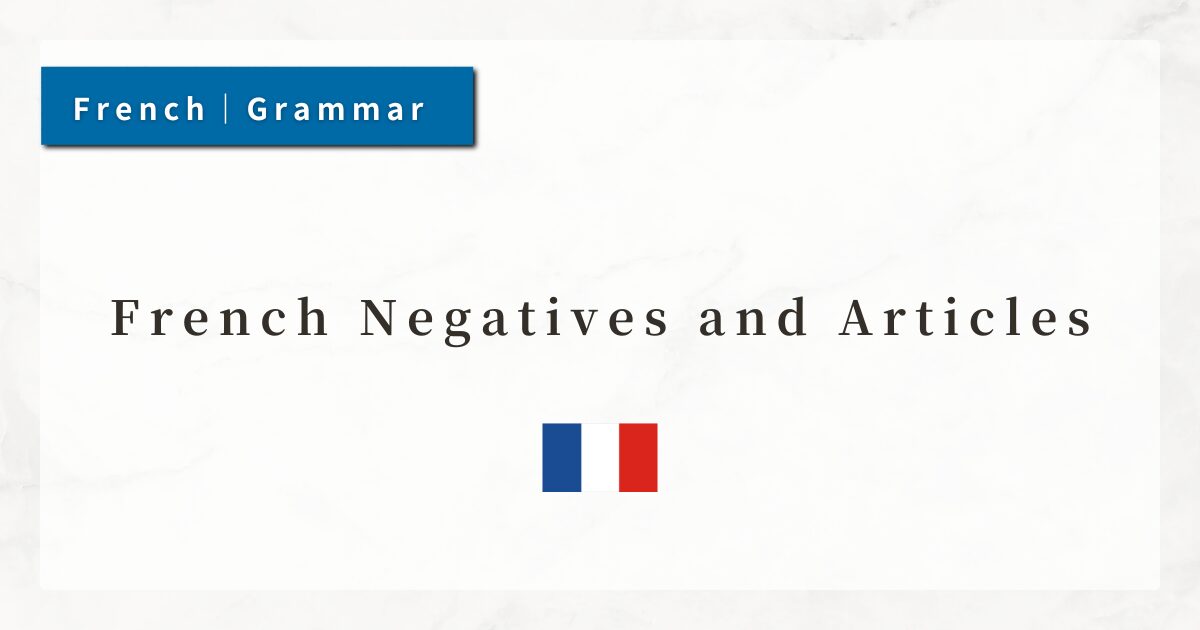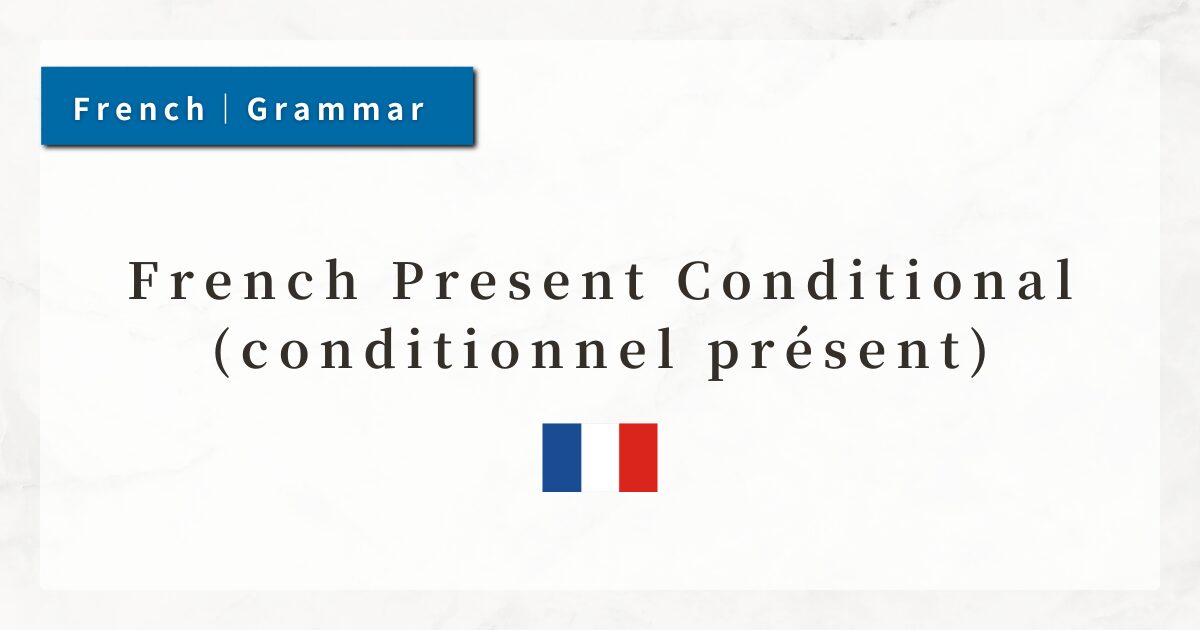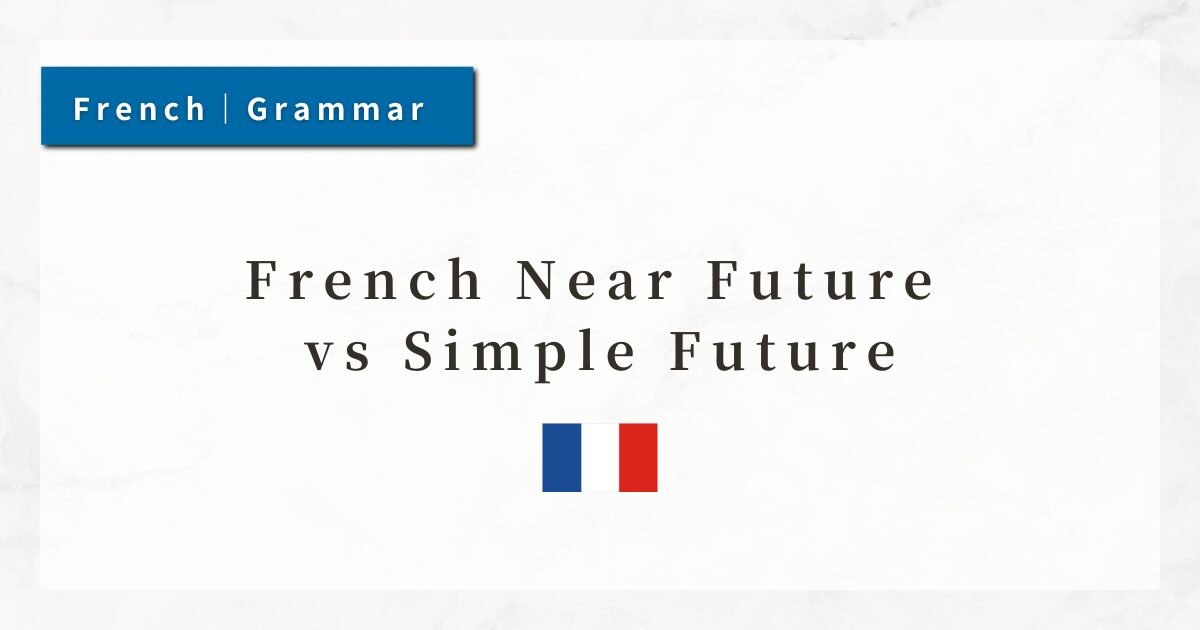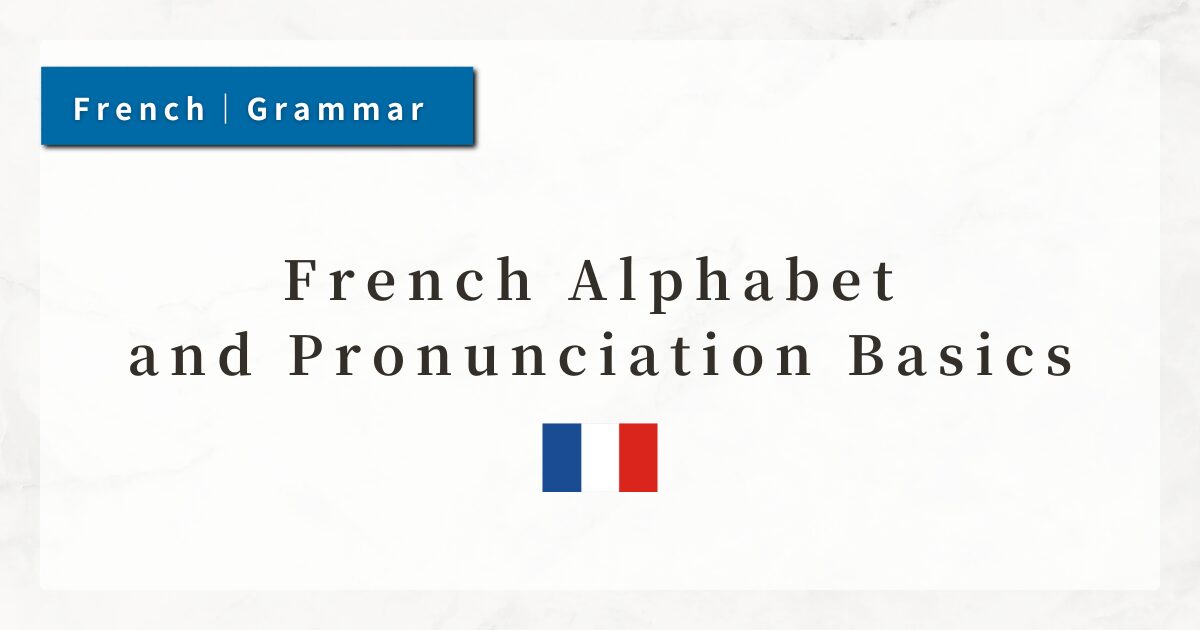#60 French Negatives and Articles | Changes in Articles in Negative Sentences

In French, when forming a negative sentence, the construction ne … pas (and its variations) is used.
However, in negative sentences, the article that comes before a noun may change. In particular, indefinite articles and partitive articles often change to de, which is an essential rule to master.
In this lesson, I will explain the cases in which articles change in negative constructions, with examples.
1. Articles That Change in Negative Constructions
A basic French negative sentence is formed by placing ne (or n’) before the verb and pas after it.
- Affirmative:
Je mange une pomme.
(I eat an apple.) - Negative:
Je ne mange pas de pomme.
(I do not eat an apple.)
Here, “une pomme” in the affirmative sentence becomes “de pomme” in the negative sentence. This is the change of articles in negative constructions.
2. Cases Where Articles Change
The following articles change to “de” or “d’ ” in negative sentences.
2-1. Indefinite Articles (un, une, des)
Indefinite articles change to “de” or “d’ ”in negative constructions.
- J’ai un livre.
(I have a book.) - Je n’ai pas de livre.
(I do not have a book.)
2-2. Partitive Articles (du, de la, de l’)
Partitive articles, used for uncountable nouns, also change to de or d’ in negative sentences.
- Il boit du café.
(He drinks coffee.) - Il ne boit pas de café.
(He does not drink coffee.)
3. Cases Where Articles Do Not Change
There are also cases where the article remains unchanged.
3-1. Definite Articles (le, la, les)
Definite articles do not change in negative constructions.
- J’aime le chocolat.
(I like chocolate.) - Je n’aime pas le chocolat.
(I do not like chocolate.)
3-2. When the Verb Is être
When the verb être (to be) is used, the article that follows does not change.
- C’est un problème.
(That is a problem.) - Ce n’est pas un problème.
(That is not a problem.)
4. Why Articles Change or Remain Unchanged
4-1. Why Do Indefinite and Partitive Articles Change to de?
In affirmative sentences, indefinite articles (un, une, des) and partitive articles (du, de la, de l’) express an unspecified item or an unspecified amount.
In negative sentences, however, the meaning shifts to “none” or “not any,” and the article is replaced with de or d’. Thus, de / d’ functions as a marker of “zero quantity.”
4-2. Why Definite Articles and être Do Not Change
Article changes occur when negating existence. In contrast, when negating attributes or general concepts, the article remains unchanged.
- Je n’aime pas le chocolat.
(I do not like chocolate.)
Here, the sentence denies appreciation of chocolate as a whole, not the existence of chocolate itself.
Similarly, with the verb être:
- Ce n’est pas un problème.
(That is not a problem.)
This denies the attribute or nature of something, rather than its existence. Hence the article un remains.
5. Summary
- Indefinite articles (un, une, des) and partitive articles (du, de la, de l’) change to de / d’ in negative sentences.
- Definite articles (le, la, les) do not change in negative sentences.
- With the verb être, articles also remain unchanged.
- Article changes occur when negating existence or quantity. They remain unchanged when negating attributes or concepts.




